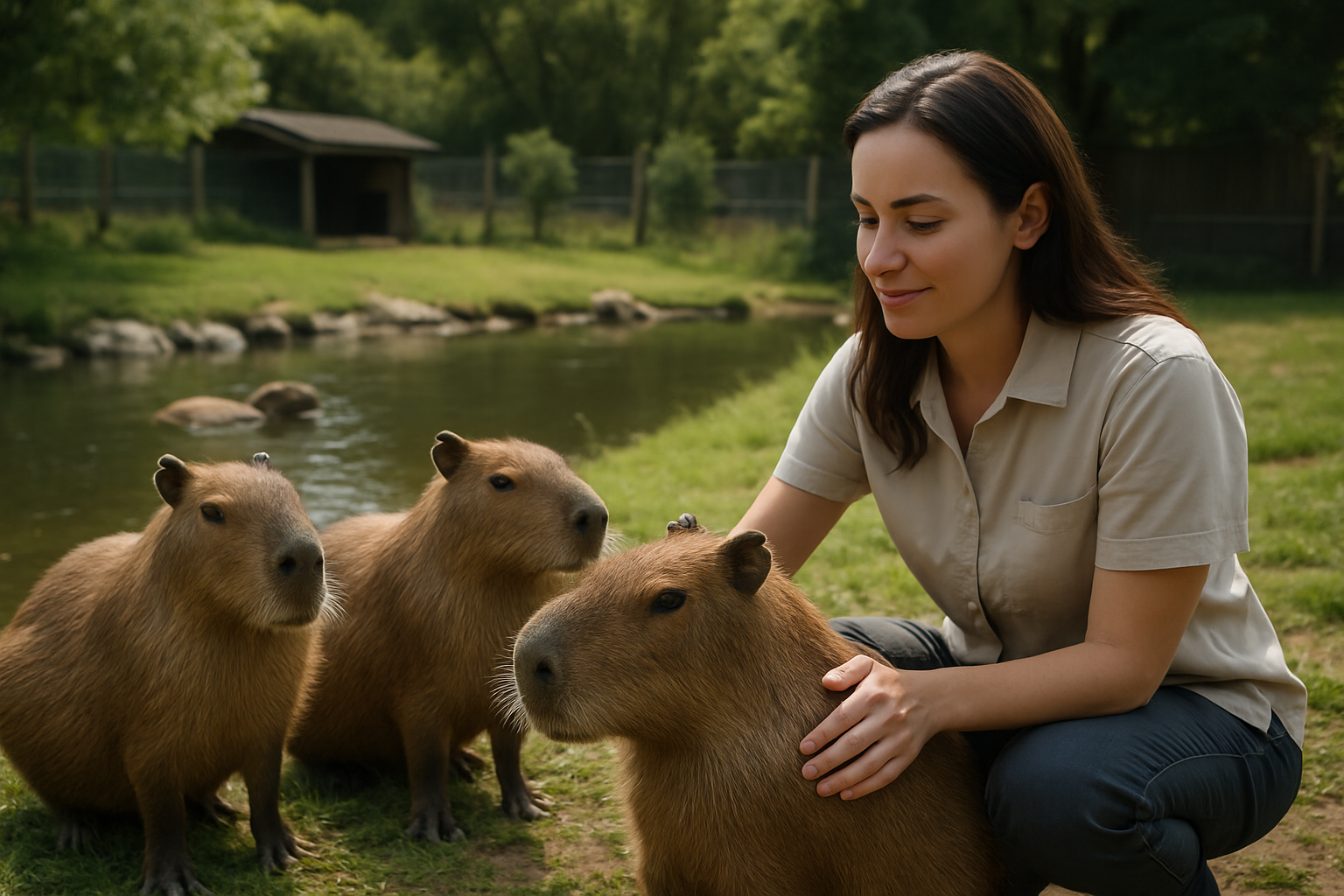Navigating the World of Capybara Companionship
Capybaras, the world's largest rodents, are making waves in the exotic pet community. These gentle giants from South America are capturing hearts with their docile nature and unique appearance. But what does it really take to welcome a capybara into your home?

Legal Considerations and Ethical Concerns
Before considering a capybara as a pet, it’s crucial to understand the legal landscape. Many countries and states have strict regulations or outright bans on keeping capybaras as pets. In areas where it’s legal, potential owners must often obtain special permits and meet specific housing requirements.
Ethical considerations also come into play. Capybaras are social animals that thrive in groups in their natural habitat. Keeping them as solitary pets can lead to stress and behavioral issues. It’s essential to weigh the impact on the animal’s well-being against the desire for an exotic pet.
Creating a Capybara-Friendly Environment
Capybaras have unique needs that differ significantly from traditional pets. They require ample space, including a large outdoor area with a pool or pond for swimming. The ideal enclosure should mimic their natural habitat, with plenty of grass for grazing and shaded areas for rest.
Indoor spaces must be capybara-proofed, as these animals are known for their chewing habits. Electrical cords, toxic plants, and valuable items should be kept out of reach. A dedicated indoor area with non-slip flooring and easy access to the outdoors is essential for their comfort and safety.
Diet and Nutrition for Captive Capybaras
In the wild, capybaras are herbivores that primarily feed on grass. Replicating this diet in captivity is crucial for their health. A capybara’s diet should consist mainly of hay, supplemented with fresh vegetables and specially formulated rodent pellets. Owners must be prepared to provide a constant supply of fresh grass or hay to meet their nutritional needs.
Water is another critical component of a capybara’s diet. These semi-aquatic animals not only drink water but also use it for temperature regulation and skin health. Access to clean, fresh water for both drinking and bathing is non-negotiable.
Health Concerns and Veterinary Care
Finding a veterinarian experienced in exotic pet care, particularly with capybaras, can be challenging. Regular check-ups are essential to monitor their health, as capybaras can be prone to dental issues, parasites, and skin problems if not properly cared for.
Vaccinations and parasite prevention are crucial aspects of capybara health care. Owners must be prepared to invest time and resources in maintaining their pet’s health, which may include specialized treatments and medications not commonly used for traditional pets.
Social Needs and Behavior Management
Capybaras are highly social animals that form strong bonds with their herd members in the wild. In a domestic setting, they require significant social interaction and mental stimulation to thrive. This may involve dedicating several hours each day to interacting with your capybara or considering adopting multiple capybaras to meet their social needs.
Training and socialization are important aspects of capybara ownership. While generally docile, capybaras can become territorial or aggressive if not properly socialized. Consistent, positive reinforcement training from an early age is essential to ensure they remain manageable and safe companions.
The Financial Commitment of Capybara Ownership
Owning a capybara is a significant financial investment. The initial cost of purchasing a capybara can range from $1,000 to $3,000, depending on availability and breeder reputation. However, this is just the beginning of the financial commitment.
Creating and maintaining a suitable habitat, providing appropriate nutrition, and ensuring proper veterinary care can quickly add up to thousands of dollars annually. Potential owners must be prepared for these ongoing expenses and unexpected costs that may arise due to the specialized nature of capybara care.
Capybaras and Human Interaction
While capybaras can form strong bonds with their human caregivers, it’s important to remember that they are not domesticated animals like dogs or cats. Their behavior can be unpredictable, and they may not always seek or enjoy human attention in the same way traditional pets do.
Interactions with capybaras should always be supervised, especially around children or other pets. Their large size and powerful teeth can pose risks if they feel threatened or uncomfortable. Establishing trust and respecting the capybara’s boundaries are key to fostering a positive relationship.
The Future of Capybara Companionship
As interest in exotic pets continues to grow, the conversation around capybara ownership is evolving. Animal welfare organizations and wildlife experts are calling for more stringent regulations and education for potential owners. The future may see the development of specialized sanctuaries or community-based care models that allow people to interact with capybaras without the full commitment of ownership.
Ultimately, the decision to bring a capybara into your life is one that requires careful consideration, extensive research, and a genuine commitment to providing the best possible care for these remarkable animals. As our understanding of their needs in captivity grows, so too does our responsibility to ensure their well-being, whether as pets or in their natural habitats.




